Text
Mike Pinder died today.
That won''t matter to most of you out there. Pinder isn't the best known berk out there, but to me, he... he was a big deal.
My love of music - my love of rock, my love of the philosophy of rock - was largely informed in my formative years by a group called the Moody Blues, who were one of the first prog groups out there. They did sampling before it was cool, courtesy of a keyboard that played samples off magnetic tape (The Mellotron, which was a convoluted beast). They used computer editing before it was cool, vis a vis big-ass mainframe computers. One of their biggest hits became a hit years after its release because a deejay in Texas needed a long song for bathroom breaks.
Pinder was one of the original lineup.
The last of the Magnificent Moodies.
He will be missed.
And if that ain't the kick in the ass I needed to write another lesson, I don't know what is.
Class will be in session again soon. Until then, here's your song of the indefinite time period... a little something to whet your whistle.
youtube
#Not a lesson#Though it's close#School of Tuneage#Music#The Moody Blues#Prog Rock#Ride My See-Saw#Youtube
18 notes
·
View notes
Video

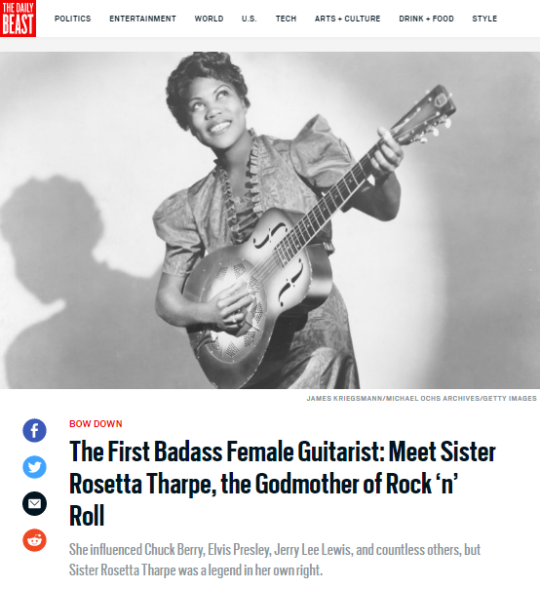
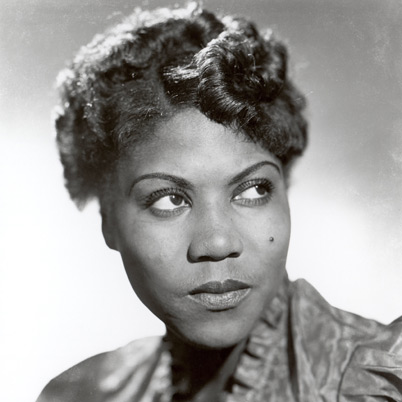
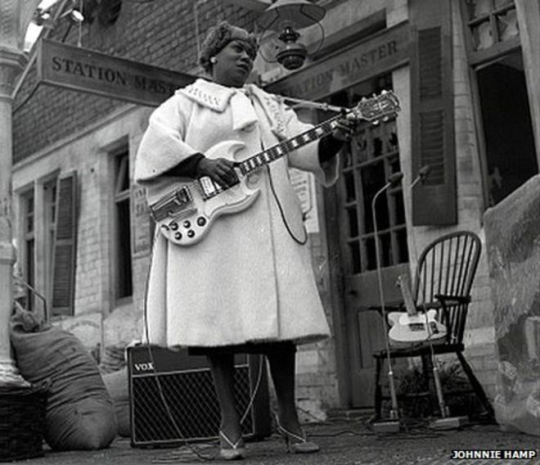
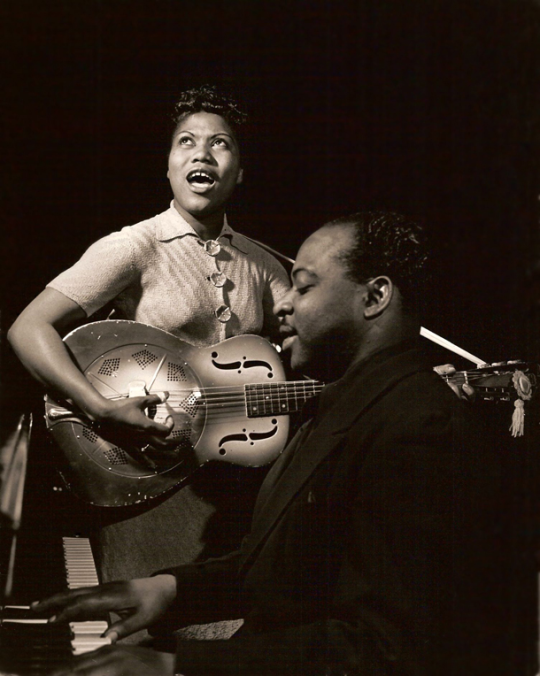
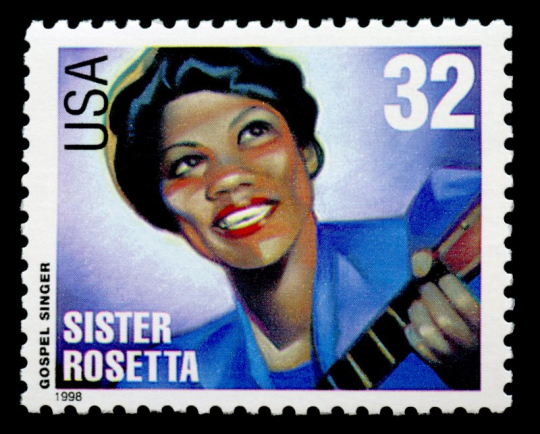

Meet Sister Rosetta Tharpe, the black woman who invented that rock and roll sound
You know what’s sad, before I even read this article I was ready to refute this because I grew up believing Chuck Berry created Rock and roll. It’s said how so many knew of this great woman yet none spoke on her greatness.
I also discovered Big Mama Thornton, who’s another hugely influential early inventor of rock and roll — I’m pretty sure Hound Dog was originally popularized by her, before Elvis stole it.
Love Sister Rosetta Tharpe! #BlackGirlMagic
A few of her performances:
https://www.youtube.com/watch?v=JeaBNAXfHfQ
https://www.youtube.com/watch?v=l9bX5mzdihs
https://www.youtube.com/watch?v=SR2gR6SZC2M
Also I heard she was bisexual…
Happy Black History Month!
#We'll be back soon#In the meantime#Consider this a smaller lesson#Rock and Roll#Sister Rosetta Tharpe
241K notes
·
View notes
Text
Lesson 3: This is not a test...
CLASS IS IN SESSION
Rick Rubin is one of the most influential producers in the music biz. He turned Linkin Park from what could have been a two-album flash in the pan into one of the deepest acts in alternative music (no kidding, A Thousand Suns remains one of this berk's top 20 albums of all time). He introduced the world to more iconic acts than I can count. And before all that… he was in a shitty punk group that was more known for fake fights and fake arrests than anything else. (His dad was a policeman and would pretend to arrest Rick when he got into planned altercations with planted hecklers - an attempt at getting traction that failed.)
But at the same time, Rick was keeping his thumb on the pulse of the New York music scene, and when he found out about a few rapidly growing groups that were turning out incredibly danceable music with an antiestablishment ethos, his first thought on listening to them was that it was Black Punk Rock.
The music in question was, of course, hip hop.
Let's delve in.
Hip hop was influenced by numerous sources - talking blues, disco, R&B - and tracking all those down would be great, but we're going to truncate slightly today, because A) I'm saving a lot of that for a later lesson, and B) because the most pertinent one is actually disco, believe it or not. See, like punk rock, there was a single spark that ignited the movement, and while it was slower to burn, it had the perfect kindling. The place was in the slums of the south Bronx, in a rec room at 1520 Sedgewick Avenue. The person was DJ Kool Herc, who spun records for dance parties there.
youtube
The above documentary gives us a good glimpse at how Herc did his thing. Today we just know it as basic mixing, but back in the day, this kind of thing was revolutionary. Add in an emcee - Coke la Rock - who would handle the microphone while Herc was mixing, and you had the first emcee-deejay combo.
Over time, more groups came together. Grandmaster Flash picked up Herc's skills, and then hammered them down, bringing them to new heights of awesomeness. He couldn't even try to get on the mic while he was mixing, too focused on the beats he was crafting, so he got an enterprising B-boy they called Cowboy to do the honors. Over time he amassed a group of five emcees to work with him - Grandmaster Flash and the Furious Five. The Treacherous Three, the Funky Four (Plus One More) - you can see a sort of theme in these early groups. Rap battles were a thing, inheriting a little bit of gang battle ethos from their founders - early rap adopters the Zulu Nation were ex-gang members who were trying to veer into a more constructive direction, and they did so well.
But for most, the genre was locked away. Sure, rapping was easy enough to do, but to be a real hip hop artist you needed a deejay, and that equipment was expensive. As I said, the spark was there, but it needed kindling.
And just as punk had its watershed moment in 1977 in London, so hip hop did in 1977 in New York. On July 13th, NYC had a city-wide blackout that lasted just over a full 24 hours. A mob mentality decended over the city, with widespread looting… and in the aftermath of these riots, a lot of expensive sound equipment made its way into the hands of enterprising would-be deejays, either through their own actions or through pawnshops who didn't ask questions about where the equipment came from in the weeks after the blackout.
Now, there is much - MUCH - to say about this scene… but as I'm delving in, I'm realizing that someone else has already done this lesson, and arguably done it better than I could ever dream of doing it. Cartoonist Ed Piskor has done a series, Hip Hop Family Tree, that chronicles the early rise of the scene beautifully. And in the spirit of the early rap bootlegs that we're going to be discussing… you didn't get it from me, but hereyago:
That's twelve issues of greatness right there.
Now, with THAT link dropped, let's talk seminal moments for the origins of hip hop.
The first track on wax that was nothing but a deejay showing off their mixing prowess? "The Adventures of Grandmaster Flash on the Wheels of Steel". This one was even more notable because Sugar Hill Records didn't like paying royalties to artists that they sampled, and tended to use original compositions rather than having Flash or other deejays mix in the background (which, yes, was kind of insulting to the art of the deejay…). Also, please note, there are NO editing tricks here. This was just Flash at his best, and he laid the whole track down in only four or five takes.
youtube
The first rap "superstar", arguably, was Kurtis Blow. At the very least, the man was both responsible for the first gold record in the hip hop genre and the man who brought it to Soul Train, with "The Breaks".
youtube
And now, we're going to zig-zag-zig back to an earlier point.
The early hip hop scene was full of bootlegs. Some were recordings of live events - Grandmaster Flash and the Furious Five had a full live track that had never been released recorded, and it's still more popular, as the studio version lacks the passion of the live recording. (Bozo Meko's version of 'Flash it to the Beat', fyi.) Unscrupulous producers would record artists in the studio under the guise of 'letting them play around' and release their work under different names - and again, that happened to the Furious Five, with "We Rap More Mellow" being released as the work of The Younger Generation. And then there were bootleg compilations released for the deejays - packages of "essential" disco songs pressed as unofficial collections, distributed behind the counter of record stores.
Our TRACK OF THE WEEK is the first of those. A recording of a live event - something that we now recognize as the first rap battle, Busy Bee Starsky vs. Kool Moe Dee. A battle that Starsky phoned in because he assumed he'd have no real competition, and Moe came loaded for bear for. This one's a slaughter, kiddos.
youtube
And we're gonna have a lot to say about hip hop in the future... but for now, that gets you to the starting line.
Class dismissed.
#school of tuneage#youtube#kool moe dee#grandmaster flash#grandmaster flash and the furious five#Kurtis Blow#DJ kool herc#hip hop#lesson 3#busy bee starsky#Youtube
7 notes
·
View notes
Text
"Best" implies that they do not all stand on each other's shoulders as a titanic body of work that has immeasurably enriched the world. I can't pick one. I can't even begin to pick one. If there was a "yes" option, I'd hit that.
604 notes
·
View notes
Text
LESSON DELAYED, NOT CANCELLED.
Apologies, my fellow freaks. Due to severe weather, personal issues, and getting WAY too down the rabbit hole of hip hop history I was forced to delay the next lesson. But worry not, it should be up this next week.
0 notes
Text
Lesson 2: We're All Punk Here
CLASS IS IN SESSION.

This is my third time typing this damn lesson, so you'll excuse me if I'm a little short.
The image above was just filler for a `zine, but it became emblematic of a movement. The three chords and the truth vibe, the go out and do something call to action. This is a fifteen word manifesto, and it helped to codify what it meant to be a punk. The subculture has deep roots - ridiculously deep - but unlike some, it at least has a pretty clear lineage. Let's delve in.
youtube
If this glorious bastard looks familiar, it's because his guitar is my icon. Woody Guthrie was a protest singer back in the day, and in this berk's opinion, the great-great-granddaddy of the punk movement. Let's give it a look.
-Did shit? Yes, he would go from farm to farm trying to get the migrant workers to unionize.
-Stripped down instrumentation? Can't get any simpler than one man and his guitar.
-Sang in support of the common man, damning the powers what be? Just listen to the lyrics. Or the words on his guitar - THIS MACHINE KILLS FASCISTS.
Folk was integral to the creation of punk - folk singer Dave Van Ronk famously joined in at Stonewall, not because he knew what was going on or was queer, but because he saw people fighting cops and thought yeah, rock on, let's do this. It was joined by the cynicism of the beat movement. The surrealism of Burroughs, and (unfortunately) the pretentious prose experiments of Kerouac helped to grease the wheels for what was to come. And from here, we have a very clear lineage, particularly in the UK punk scene. From folk and the beats, we got the MODS.
youtube
Short for Modernists, not Moderates, the mods were jazz-loving bastards that were known for taking amphetamines and dancing all night, driving around in souped up Vespas with entirely too many mirrors, getting into fights with rockers, and generally being the glorious asshole follow-ups to the beats. The thing is, they also got popular. Real fuckin' popular. And this created a problem. By the mid sixties, the mods had split in two. The larger part of the mods went mainstream, becoming what the others decried as "soft mods" or "peacock mods", while the remainder became "hard mods". These sods were working class folk, blue collar and unpretentious and kickass, and they found kindred spirits in the Jamaican Rude Boy subculture... and a music they called ska.
youtube
And from these "hard mods", we got... skinheads.
Yeah, skinheads. And before you say it, no, these weren't the racist neo-nazi fucks that we delight in introducing to the business end of a pipe wrench. That division came much later. These skinheads were basically just proto-punks, enraged at the world, but embracing music that spoke of unity and togetherness.
The fuel for the glorious, angry bonfire that was punk was there in the seventies, but it needed a spark. While 76 was widely considered Year Zero for the punk movement, it was 77 that gave us the watershed moment - the moment that punk erupted into public consciousness. It gave us the Sex Pistols, and "God Save the Queen".
youtube
Not too shabby for a band that picked a bassist based entirely on how he looked, right?
Now, I'm not going to say that the Sex Pistols were a great group. Musically they were middling, but the sheer impact they made cannot be understated. They outright called the UK a fascist regime in the second line of their first single, released the week of the Queen's diamond jubilee. "God Save the Queen" was banned from airplay in the UK, and is to this day one of the most banned records of all time.
This attention, and stellar releases from fellow UK punk band The Clash, helped to galvanize the scene. As "Never Mind the Bollocks, Here's The Sex Pistols" hit #1 on the charts, it was obvious that the punk scene was here to stay.
youtube
In the US, the scene started with a bar called CBGB, and an extended tenure of two bands - Television and The Ramones, with the latter band becoming sort of the prototype of the American punk band, focused on stripped down rock numbers, and a slightly goofier feel. This berk will argue that the Ramones were never truly punk - they were punk adjacent at a time when Punk was an upcoming genre, Johnny Ramone being a hardcore republican - but that's an argument for another time.
You see, with those bands making the first ripples, other bands soon impacted that turned it into a wave. `77 was the start of the Second Wave of Punk, the first years that punk could be considered a unified genre instead of a couple of bands doing their own thing that sort of fell into the same groove. The Misfits, Black Flag, the Police...
I could follow this rabbit hole all day. By `79 the genre was splintering, branching out into a dozen disparate subgenres, which are still branching out to this day. But instead of exploring every single one - which would be better served as another group of lessons another day - I'll leave you with the track of the week. The Badass Creed for the punk movement. The song that took a stand against the right wing trying to adopt punk in the 80's. The song that set the stage for Hobie Brown, and which arguably serves as the backbone to the punk ethos today... here's the Dead Kennedys, "Nazi Punks Fuck Off".
youtube
`NUFF SAID.
CLASS DISMISSED.
And next time, we're going to be looking at a genre which producer Rick Rubin could only process as "black punk rock" when he first heard it... I said a hip-hop, the hippie, the hippie to the hip, hip-hop and you don't stop the rockin' to the bang-bang boogie, say up jump the boogie to the rhythm of the boogie, the beat…
#school of tuneage#Lesson 2#Punk rock#Punk music#Punk subculture#The Clash#The Sex Pistols#Dead Kennedys#Woody Guthrie#The Who#Madness#Mods#Skinheads#Ska#Youtube
33 notes
·
View notes
Text
A SHORT ANNOUNCEMENT
I accidentally erased the entire second lesson that I had just typed out. Will retype later this evening. And as a measure of a preview... I hope you're ready to delve into one of this berk's subcultures of choice.
After all, we're all punk here.
1 note
·
View note
Text
SCHOOL OF TUNEAGE: LESSON ONE. IN THE BEGINNING...
CLASS IS IN SESSION.
Good evening, my fellow freaks, fillies, and other assorted friends. I'm your deejay for the evening, Zee, and I'll be starting out this blog, this course, and this whole damn mission with a statement that some would consider to be moderately controversial.
Rock music is innately Black music.
Now, yes, we've had our share of crackers in the biz (myself included) but the FOUNDATIONS OF ROCK MUSIC, AND THE SONGS THAT MADE ROCK MUSIC WHAT IT IS, are primarily from Black artists.
Don't believe me? Let's delve in.
Early Rock and Roll was, at its core, a danceable, high-octane (for the time) fusion of Rhythm and Blues and Country. Now, I don't have to tell you how very Black-dominated R&B was, even at the time.
Consider this: Jimmy Preston's "Rock The Joint", from 1949.
youtube
Or, from 1946, Arthur "Big Boy" Crudup's "That's All Right".
youtube
BUT rock `n roll got passed off to the public vis-a-vis an acceptable, lilly-white proxy… Elvis Presley. Consider this, his seminal hit, 'You Ain't Nothin' But A Hound Dog'.
youtube
Now, do you want to see something really awesome?
Elvis' version was a cover. A cover that he (and the recording industry) tried to pretend wasn't a cover.
Here's our first track of the week… the original.
youtube
That's BIG MAMA THORNTON, blues singer, the woman responsible for the trope codifier for rock `n roll… and, you will note, a woman singing quite a different song from Elvis' version. Big Mama's was a song of Black female empowerment, a song about telling a freeloading gigolo to hit the road, while Elvis' was sanitized into almost a Kidz Bop version. Hell, he sanitized it MORE than Kidz Bop sanitized "Lips of an Angel" (and more on THAT debacle another day).
And this was far from the only offense in Presley's resume.
Otis Blackwell was a prolific songwriter who originally sang many, many early rock songs. These included Jerry Lee Lewis' 'Great Balls of Fire', as well as Elvis' 'All Shook Up', 'Don't Be Cruel', and 'Return to Sender'. And these last three are probably the most damning indictment of the whitewashing of rock `n roll. Why?
youtube
That's why. Give that a close listen.
Elvis seemed to take his entire way of singing - his delivery, his inflection, everything - from Otis Blackwell. As you can see from Otis' album title there, "These are my songs!", he was at least able to attempt to claw back some recognition in later years, but - in the opinion of this berk - it was definitely a case of too little, too late.
We know now. History is damn clear on the topic. But for years, the industry hid behind the Great White Hype of Elvis, pretended he was an innovator instead of a repackager, and shut out the real innovators from their rightful recognition.
Perhaps it is ironic that in years to come - particularly in the late sixties and seventies - there would be a rising 'damn the man' rebellion baked into rock and roll. Or perhaps it would just be karma, ensuring that the sanitization of an inherently rebellious music made by an oppressed people would still carry their spirit.
For tonight, I leave you with another early rock track - what some people say is the first real rock song. Ike Turner and his Kings of Rhythm - Rocket 88.
youtube
Class dismissed.
And now we go to open conversation - we've got a survey out right now, check down the page. If you fill it out, I'll have a better idea of what topics everyone wants to cover. And of course, if you want to keep talking about what I covered above... please do.
#School of Tuneage#Lesson 1#Music#Rock and Roll#Ike Turner#Big Mama Thornton#Otis Blackwell#Arthur Crudup#Jimmy Preston#Elvis Presley#Early Rock#Proto-rock#R&B#Videos#Youtube
17 notes
·
View notes
Text
TO ALL THOSE THAT RESPONDED:
@hugintheraven, @ohno-myheart, @sushiandmo, @human-collector0, @taonf, @trippingonahole, @thatgirlwiththeflower...
CLASS STARTS IN THE NEXT 15 MINUTES OR SO. Eyes here for the post!
#Not a lesson#Announcement#Also a thank you#Y'all's made sure this became a thing#So thank you#Also fill out the survey!
0 notes
Text
AND WE'RE UP.
OPEN QUESTION TO THE UNDER-25 CROWD:
I keep running into younger Tumblr users who haven't heard music that was seminal to the development of what's out there today - milestone music that helped to define genres and shape the present landscape of music.
No judgement on my part, mind you. There's an absolute FLOOD of good stuff out there, and with Bandcamp and Youtube and... other less user controlled services it's damn easy to find tunes that you like and to miss stuff that us oldsters connected with.
But the question at hand is - would there be an interest in a kind of Tumblr-based discussion group/weekly lesson on music history? Something where I dish out a track of the week/related tracks of the week/album of the week and explain how it fits into history, and we kick around reactions and thoughts?
Please share this around, and comment/reblog if you're interested.
24 notes
·
View notes